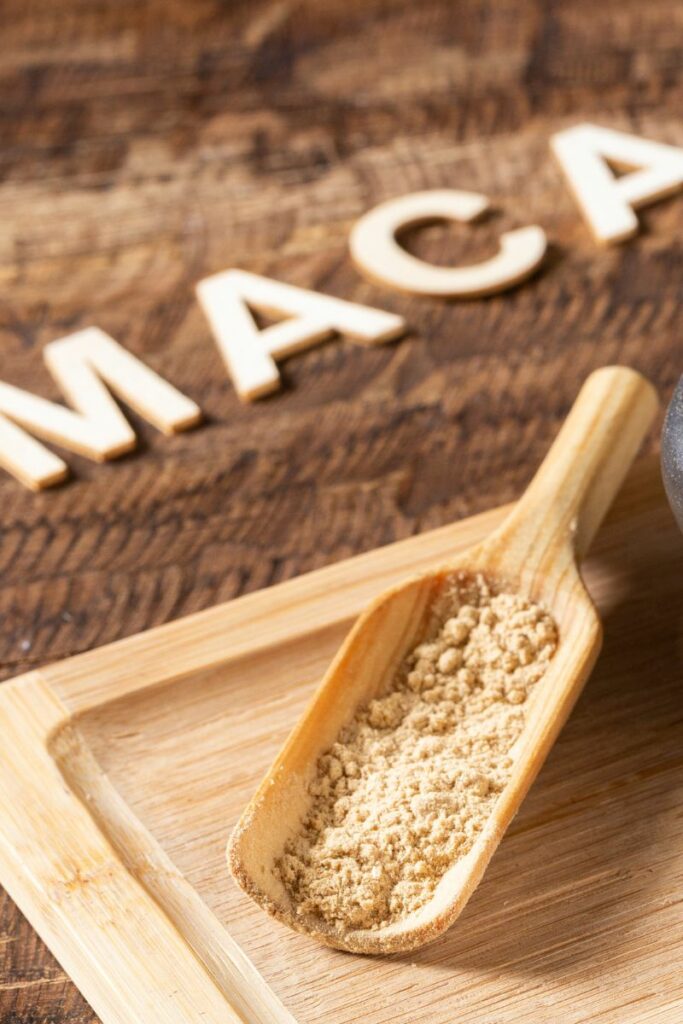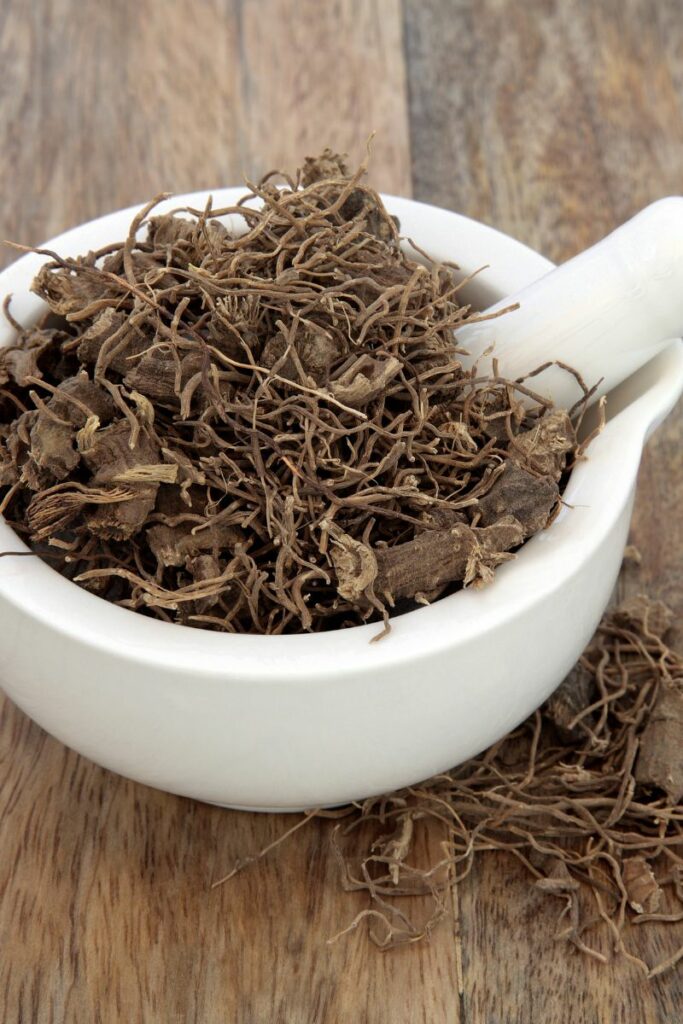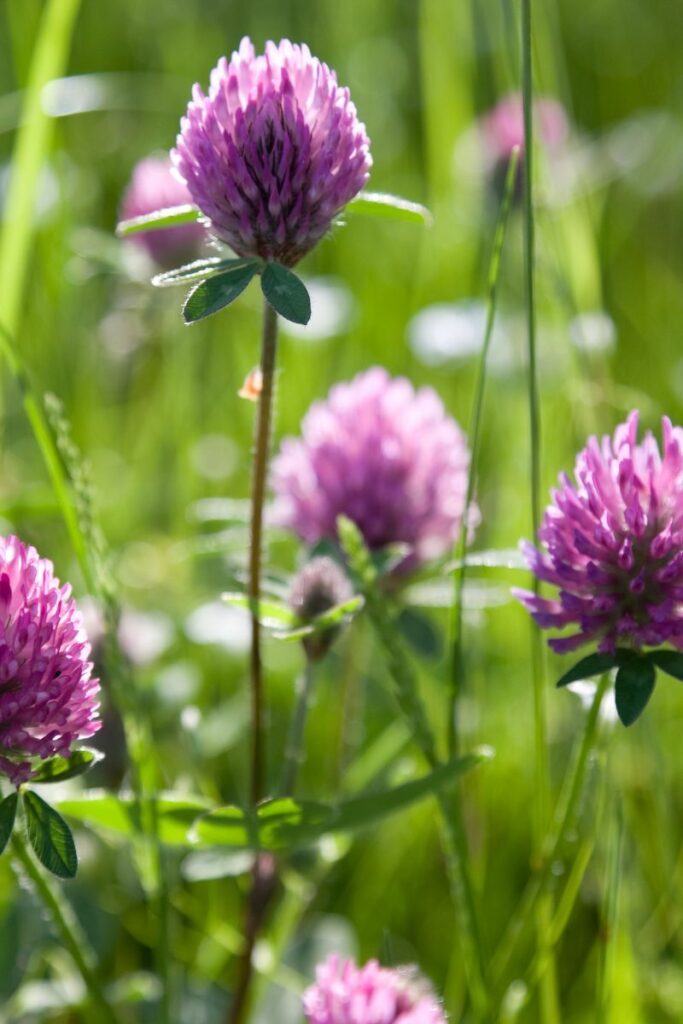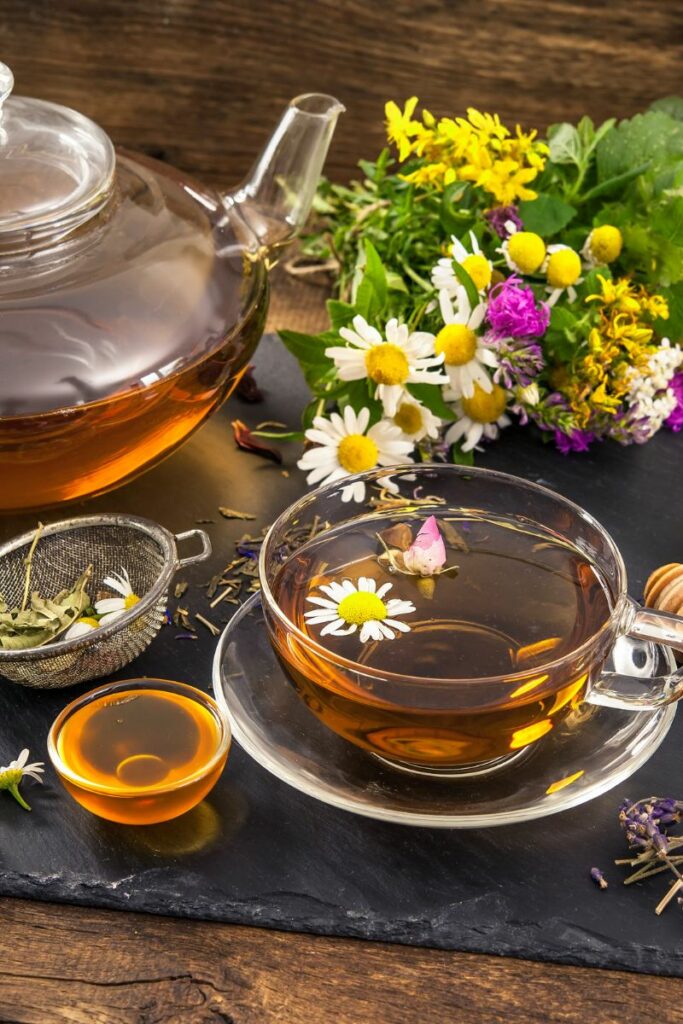5 Herbal Remedies For Hormonal Imbalance In Women
5 Herbal Remedies For Hormonal Imbalance In Women can help you naturally manage symptoms like hot flashes, mood swings, and irregular menstrual cycles. Discover how these herbs can support your hormone balance and overall health.

Do you ever feel tired, have mood swings, or suffer from irregular menstrual cycles? These can all be signs of hormone imbalance in women.
Hormone balance is crucial for overall health and well-being. It affects everything from energy levels and mood to reproductive health and the menstrual cycle. When hormones are out of balance, it can lead to symptoms like menstrual cramps, hot flashes, and even hair loss.
In this article, we will explore five fantastic herbs that can help manage hormonal imbalances naturally. These herbal remedies have been used in traditional medicine for years and offer a natural way to support hormone levels and improve overall women's health.
What is Hormonal Imbalance?
Hormonal imbalance happens when there is too much or too little of a hormone in the bloodstream. Hormones are like tiny messengers in the body that control many functions, including growth, metabolism, and reproduction. When they are out of balance, it can cause various health problems.
Common Causes of Hormonal Imbalance
There are several reasons why women might experience hormonal imbalance:
- Stress: Chronic stress can affect the adrenal glands, leading to hormonal issues.
- Diet: Eating too much sugar, unhealthy fats, or not getting enough essential nutrients like vitamin D and B vitamins can disrupt hormone levels.
- Lifestyle: Lack of sleep, not enough exercise, and high stress levels can all impact hormone balance.
- Environmental Factors: Exposure to environmental toxins, such as those found in plastics and pesticides, can affect hormone production.
- Medical Conditions: Conditions like polycystic ovary syndrome (PCOS) and insulin resistance can also cause hormonal imbalances.
Symptoms of Hormonal Imbalance
Women with hormonal imbalance might experience a range of symptoms, including:
- Irregular Periods: Changes in the menstrual cycle, such as missed periods or very heavy periods.
- Mood Swings: Feeling very happy one moment and very sad the next.
- Weight Gain: Unexplained weight gain, especially around the belly.
- Fatigue: Feeling extremely tired all the time, even with enough sleep.
- Hair Loss: Losing more hair than usual.
- Hot Flashes and Night Sweats: Common menopausal symptoms where women feel sudden heat and sweat a lot.
- Low Libido: Reduced interest in sex.
- Menstrual Cramps: Painful periods with strong cramps.
- Skin Problems: Acne and other skin conditions.
- Digestive Issues: Problems like bloating or stomach pain.
- Vaginal Dryness: Discomfort during sex due to lack of natural lubrication.
Understanding what hormonal imbalance is and its common causes and symptoms can help you recognize and address these issues. In the next sections, we'll discuss some fantastic herbs that can help bring your hormones back into balance naturally.

Why Choose Herbal Remedies?
Natural Healing
Using herbal remedies is a great way to address hormone imbalance naturally. Unlike synthetic hormones or hormone replacement therapy, herbs work gently with your body to help restore hormone balance. They come from plants, making them natural products without many of the harmful chemicals found in some conventional treatments. Herbs can help manage symptoms of hormone imbalance, such as irregular menstrual cycles, hot flashes, and low energy levels, in a gentle and effective way.
Holistic Approach
Herbal remedies offer a holistic approach to health, meaning they aim to treat the whole person, not just the symptoms. This holistic approach can improve overall well-being, including mental health, energy levels, and immune system function.
Safety and Efficacy
While herbal remedies are generally safe, it's important to consult with a healthcare provider before starting any herbal regimen. This ensures that the herbs you choose are appropriate for your specific health needs and won't interact with any medications you might be taking.
For instance, milk thistle is known for its benefits for the liver and hormone production, but it’s always best to check with a professional to ensure it’s right for you. Herbal supplements can have side effects, and your doctor can help you avoid any potential risks.
Choosing herbal remedies for hormone imbalance can be a safe, natural, and holistic way to support your body and improve your overall health. By consulting with a healthcare provider and using these fantastic herbs, you can find a natural way to manage your hormonal issues and achieve a better balance.
Top 5 Herbal Remedies For Hormonal Imbalance In Women
1. Maca Root
What is Maca Root?
Maca root is a plant that grows in the Andes mountains in Peru. It's been used in traditional medicine for a long time to help with energy and stamina.

How it helps balance hormones and improve energy and mood
Maca root is an adaptogenic herb, which means it helps your body adapt to stress. It can balance hormone levels and improve energy and mood. It’s especially helpful for women experiencing menopausal symptoms like hot flashes and low energy levels.
How to incorporate Maca into your diet
You can add maca powder to smoothies, oatmeal, or even baked goods. It’s also available in capsules if you prefer to take it as a supplement.
Contraindications
- People with thyroid issues should use maca cautiously, as it can affect thyroid hormone levels.
- Pregnant or breastfeeding women should consult with a healthcare provider before using maca.
2. Vitex (Chasteberry)
What is Vitex?
Vitex, also known as chasteberry, is a fruit from the chaste tree. It’s been used in traditional medicine to help with female hormones.

Its role in regulating menstrual cycles and reducing PMS symptoms
Vitex can help regulate the menstrual cycle and reduce symptoms of premenstrual syndrome (PMS), like mood swings and menstrual cramps. It works by influencing the pituitary gland, which controls hormone production.
Best ways to take Vitex
Vitex is commonly taken as a tincture or in supplement form. Follow the dosage instructions on the product or consult with a healthcare provider.
Contraindications
- Women who are pregnant or breastfeeding should avoid using vitex.
- People taking birth control pills or hormone replacement therapy should consult with a healthcare provider before using vitex.
3. Ashwagandha
What is Ashwagandha?
Ashwagandha is a herb used in Ayurvedic medicine. It's known for its stress-relieving properties.

Stress reduction and its impact on cortisol levels and hormonal balance
Ashwagandha helps reduce chronic stress by lowering cortisol levels. Lowering stress can help balance hormones and improve overall health. It also supports the nervous system and endocrine system, which are crucial for hormone balance.
Suggestions for using Ashwagandha
You can take ashwagandha in various ways, such as in teas, powders, or capsules. Adding ashwagandha powder to warm milk or smoothies is a popular option.
Contraindications
- Pregnant or breastfeeding women should avoid using ashwagandha.
- People with autoimmune diseases or thyroid issues should consult with a healthcare provider before using ashwagandha.
4. Black Cohosh
What is Black Cohosh?
Black cohosh is a plant native to North America. It’s been used in herbal medicine to help with female hormone issues.

Its effectiveness in alleviating menopause symptoms and balancing estrogen
Black cohosh is effective in reducing menopausal symptoms like hot flashes and night sweats. It helps balance estrogen levels, which can alleviate symptoms of hormone imbalance in postmenopausal women.
How to use Black Cohosh
Black cohosh is available in extracts, capsules, and teas. Follow the instructions on the product label or seek advice from a healthcare provider.
Contraindications
- Women who are pregnant or breastfeeding should avoid using black cohosh.
- People with liver issues should consult with a healthcare provider before using black cohosh.
5. Red Clover
What is Red Clover?
Red clover is a flowering plant that is rich in phytoestrogens, which are plant-based compounds that can mimic estrogen in the body.

Its phytoestrogen content and role in supporting hormone health
The phytoestrogens in red clover help balance female hormones and support reproductive health. It’s beneficial for reducing symptoms of hormone imbalance, such as hot flashes and vaginal dryness.
Tips for incorporating Red Clover
You can use red clover in teas, capsules, or tinctures. Drinking red clover tea is a soothing way to incorporate this herb into your daily routine.
Contraindications
- Women who are pregnant or breastfeeding should avoid using red clover.
- People with hormone-sensitive conditions should consult with a healthcare provider before using red clover.
How to Incorporate These 5 Herbs Into Your Daily Routine
Adding herbs to your daily routine can be easy and beneficial for your hormone balance. Here are some simple ways to do it, along with recommended dosages for effectiveness:
Maca Root
- Smoothies: Add 1 teaspoon of maca powder to your morning smoothie for an energy boost.
- Capsules: Take 1,500-3,000 mg of maca root capsules daily, as directed on the bottle.
Vitex (Chasteberry)
- Tinctures: Add 30-40 drops of vitex tincture to a glass of water or juice once daily.
- Supplements: Take 400-1,000 mg of vitex supplements daily, as recommended on the package.
Ashwagandha
- Teas: Make ashwagandha tea by adding 1 teaspoon of ashwagandha powder to hot water.
- Powders: Mix 1 teaspoon of ashwagandha powder into warm milk or your favorite beverage.
- Capsules: Take 500-1,000 mg of ashwagandha capsules daily.
Black Cohosh
- Extracts: Use black cohosh extracts by following the dosage instructions on the product label (typically 20-40 mg twice daily).
- Capsules: Take 40-80 mg of black cohosh capsules twice daily with your meals.
Red Clover
- Teas: Brew red clover tea by steeping 1-2 teaspoons of dried red clover flowers in hot water for 10-15 minutes. Drink 1-2 cups daily.
- Supplements: Take 40-160 mg of red clover supplements daily, as directed on the package.

Recipes and Suggestions of Use
Here are some quick recipes and daily routines to help you include these herbs:
- Maca Smoothie Recipe:
- Ingredients: 1 banana, 1 cup of almond milk, 1 teaspoon of maca powder, 1 tablespoon of honey.
- Blend all ingredients until smooth and enjoy for breakfast.
- Ashwagandha Milk:
- Ingredients: 1 cup of warm milk, 1 teaspoon of ashwagandha powder, a pinch of cinnamon, 1 teaspoon of honey.
- Mix well and drink before bedtime to help reduce stress levels.
- Red Clover Tea:
- Ingredients: 1 tablespoon of dried red clover flowers, 1 cup of hot water.
- Steep the flowers in hot water for 10 minutes, then strain and drink. You can add honey for taste.
- Vitex Morning Drink:
- Add a few drops of vitex tincture to a glass of water or juice each morning.
- Black Cohosh Evening Supplement:
- Take black cohosh capsules with your dinner to help with menopausal symptoms like hot flashes and night sweats.
Consistency is Key
To see the best results, it’s important to be consistent with your herbal supplements. Incorporate these herbs into your daily routine and stick with it for several weeks or months. Remember, natural remedies can take a long time to show effects, so patience is important. Consistent use will help balance your hormone levels, improve your menstrual cycle, and support overall reproductive health.
Lifestyle Changes to Support Hormonal Balance
Dietary Recommendations
Eating a healthy diet is one of the best ways to support hormone balance. Here are some foods that help balance hormones:
- Healthy Fats: Foods like avocados, nuts, seeds, and olive oil provide essential fatty acids that are crucial for hormone production.
- Lean Protein: Include sources of lean protein like chicken, fish, tofu, and legumes to support overall health and hormone levels.
- Whole Foods: Focus on whole foods like fruits, vegetables, and whole grains to get the vitamins and minerals your body needs.
- B Vitamins: Foods rich in B vitamins, such as eggs, dairy, and leafy greens, help with hormone production and energy levels.
- Vitamin D: Sunlight is a great source of vitamin D, but you can also eat foods like fatty fish and fortified dairy products to get enough vitamin D, which is important for hormone health.
Exercise and Stress Management
Regular physical activity and managing stress are important for maintaining hormone balance. Here’s why:
- Exercise:Helps reduce insulin resistance, which is important for hormone balance. It also boosts your energy levels and improves mood.
- Activities like walking, running, yoga, and swimming can be very beneficial.
- Stress Management:Chronic stress can lead to hormone imbalances. Finding natural ways to manage stress can help keep your hormones in check.
- Adaptogenic Herbs: Holy basil and rhodiola rosea are adaptogenic herbs that help your body cope with stress.
- Relaxation Techniques: Practices like deep breathing, meditation, and mindfulness can help reduce stress levels and support your nervous system.
Sleep and Hydration
Getting enough sleep and staying hydrated are crucial for hormone balance. Here’s how:
- Sleep:Aim for 7-9 hours of quality sleep each night. Proper sleep helps regulate your endocrine system, which controls hormone production.
- Tips for Better Sleep: Stick to a regular sleep schedule, create a calming bedtime routine, and make your sleeping environment comfortable.
- Hydration: Drink plenty of water throughout the day. Staying hydrated helps maintain healthy blood flow and supports your body's functions, including hormone production.
- Hydration Tips: Carry a water bottle with you, set reminders to drink water, and include hydrating foods like fruits and vegetables in your diet.
Incorporating these lifestyle changes can support hormonal balance and improve your overall health. By focusing on a balanced diet, regular exercise, stress management, proper sleep, and hydration, you can help manage hormone imbalance naturally.

Conclusion
In this article, we've explored five fantastic herbal remedies to help with hormone imbalance in women. These remedies include Maca Root for energy and mood, Vitex for menstrual cycle regulation, Ashwagandha for stress reduction, Black Cohosh for menopausal symptoms, and Red Clover for hormone health.
We've also discussed how to incorporate these herbs into your daily routine, and lifestyle changes like a healthy diet, regular exercise, stress management, and proper sleep to support hormone balance.
Remember, balancing your hormones naturally takes time and consistency. Be patient and stick with your new habits and herbal supplements. These natural ways can help improve your energy levels, reduce symptoms like hot flashes and menstrual cramps, and support overall reproductive health.



